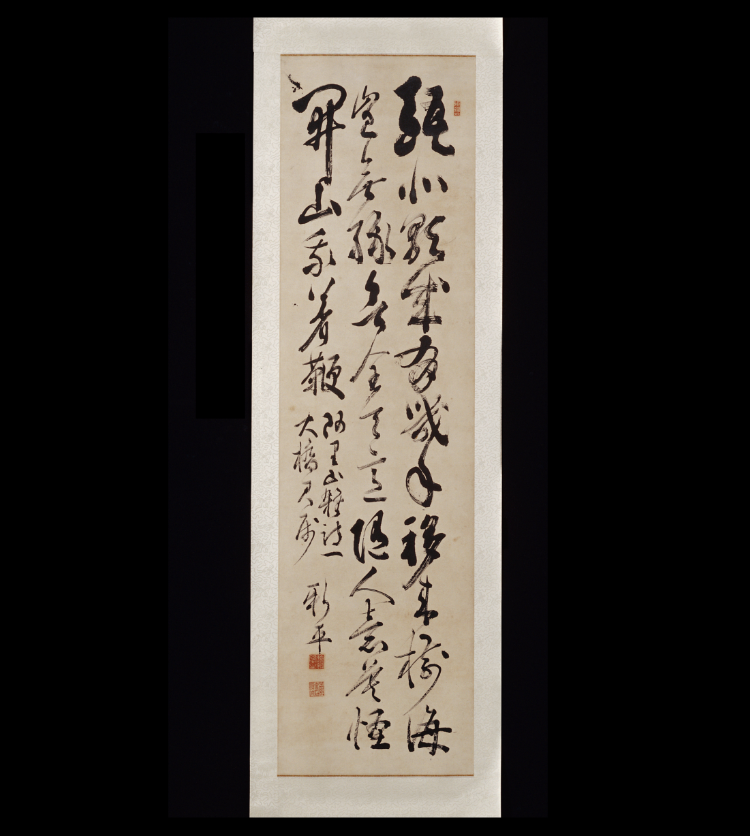This work of cursive script before you has characters with different sizes, some with thick ink, gentle and ample, and others with dried ink, showing a reckless masculinity. The entirety is imposing and unrestrained with a strong expressiveness.
Let us first look at how the work is signed in small characters on the left side. It reads: “No. 1 seven-character verse on Alishan.”“Entrusted by Ōhashi. ””Shinpei.”The calligrapher Gotō Shinpei served as director of Taiwan’s Bureau of Civil Affairs for eight years from 1898 to 1906, during which time he promoted many large-scale projects and constructions. He was one of the most influential people governing Taiwan during Japan’s fifty-year colonization of the island. The entire text of this classical Chinese poem in cursive script reads: "It has been many years since Ou Bei finished his song; moving a sea of trees is not for no reason. If I desire the will of heaven to follow that of the people, do not fault me for opening the mountains with a whip.” The poem uses a sea of trees to describe the vast and dense forest on Alishan with its towering trees, while also expressing the author’s hope of developing Alishan and gaining access to the high-quality wood.
Gotō Shinpei was full of creativity and reformative fervor, and he was a capable and experienced administrator. The construction of the Alishan Forest Railway, for example, was overseen by him. Through his vigorous and powerful brush strokes we can almost feel the towering heroism of the artist’s inner spirit.
